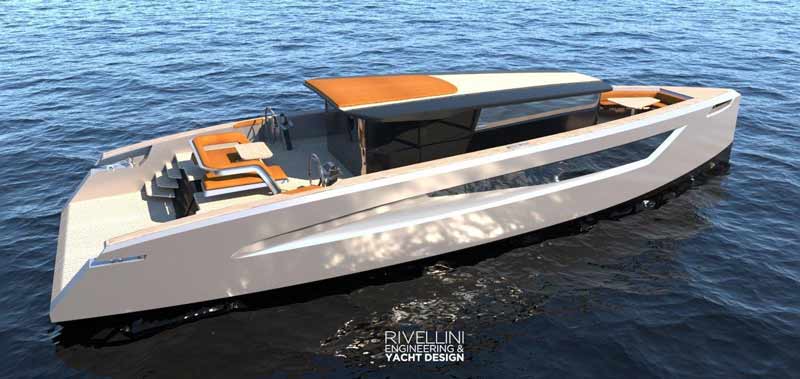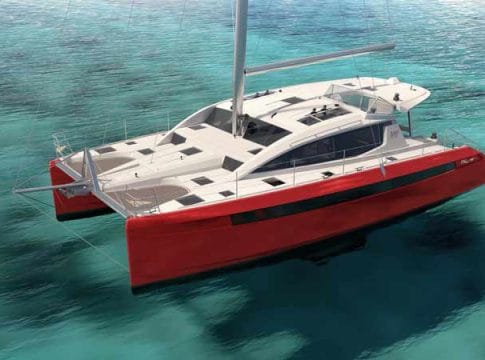Valerio Rivellini, the well-known naval engineer and yacht designer who made his mark with the creation of the innovative Evo Yachts models, presents a groundbreaking concept standing out for originality and appeal.
Velar 70 is a 21.5-meters boat with refined, minimalist interiors, designed for boat lovers who want to enjoy comfort in cruising keeping a careful eye on consumptions. This new appealing project is the perfect match between creativity and ease of construction, combining strong points of a motorboat and a sailboat.
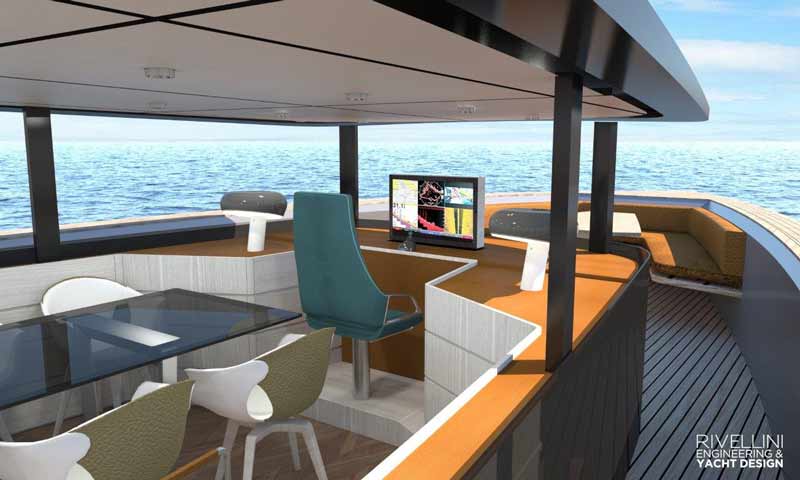
“When I start working on a project, I think about the needs of the person I’m designing for, trying to meet them without pre-existing parameters that could affect creativity. I’m focused on the owner’s feelings and on the way he wants to experience them on board. My goal is to bring his emotions alive. There are different concepts of living the sea and all of them are constantly evolving. I try to follow the trends I find more interesting and use them in my projects.
Velar 70 is a leisurely, low-cost displacement cruising solution, offering the pleasure of the sailing experience without the commitment of a sailboat. While I was working on it, I asked to myself: ‘why don’t you take advantage of interior and exterior spaces of two different kinds of yachts for creating a new type of boat?’ In this sense, Velar 70 is a custom project, entirely designed to better fit the owner’s needs” commented Valerio Rivellini, founder of Rivellini Engineering and Yachts Design: a company specialized in yacht design, engineering and refitting.
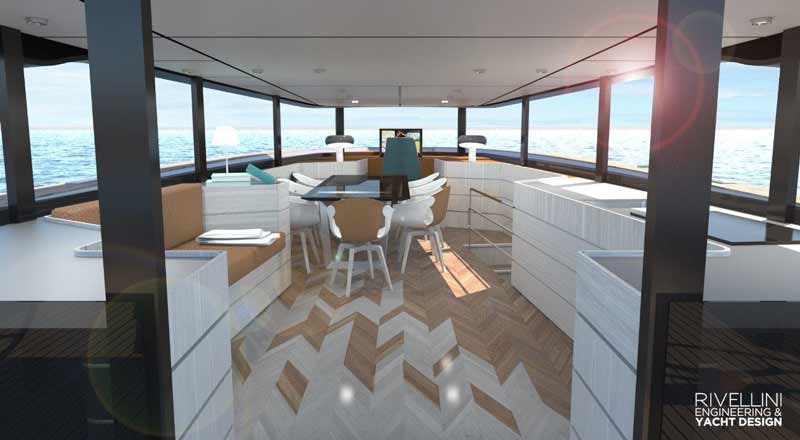
Rivellini is the designer of a series of internationally appreciated projects, such as Evo R4, the latest Evo R6, recently awarded at Cannes Yachts Trophy 2019 for the best exterior design, and Evo T2, a best-of-breed tender built with remarkable attention to detail. He is also involved in successful projects as Gozzo (a double-ended fishing boats designed and built by Cantiere Mimì). Creativity-driven design, focus on innovation and form and function solutions are the highlights of his work.
Velar 70 stands out for its comfort and generous exteriors, combined with refined, minimalist interior design. The big ship’s wheels give the owner the feeling of helming a sailboat, while the yacht can also be handled from the more protected and comfortable helm station in the deckhouse. A joystick can replace the wheel in case of complicated manoeuvres or rough sea.
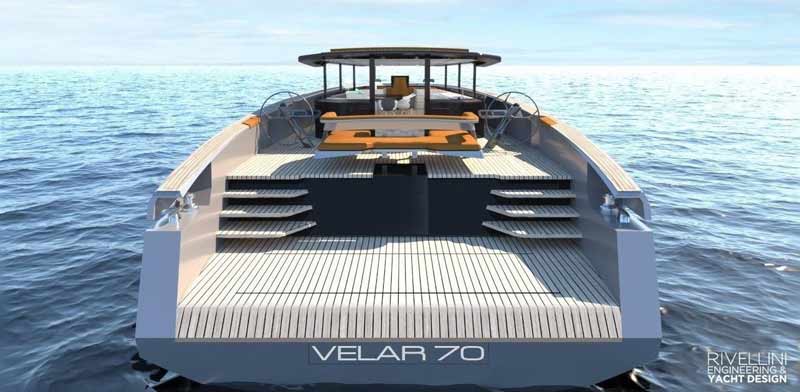
The boat’s design is minimal and functional but fully appointed with accessories that ensure a high level of comfort without being visible, such as the tender crane and the multifunction sea ladders. The glazed surfaces in the deckhouse can be fully retracted turning the boat into a pure open with T-top.
Another important feature of Rivellini’s work is his close attention to the evolution of the different tendencies in yacht design. The trend that inspired this project is the return to a traditional way of leaving the sea, enjoying the time on board and the surrounding landscape, looking for calm, comfort and conviviality rather than performance in navigation. The designer explains: “Velar 70 fits for those who love experiencing the sea in many different ways, switching from leisurely cocktails on board, to relaxing moment” The result is a type of product both for families and singles, appealing to a broad segment of the international market.
The interior layout offers four cabins (8 guests): a VIP cabin forward, an owner’s suite with a living room overlooking the sea and two double guest cabins. All the settings are roomy and comfortable for long stays on board.
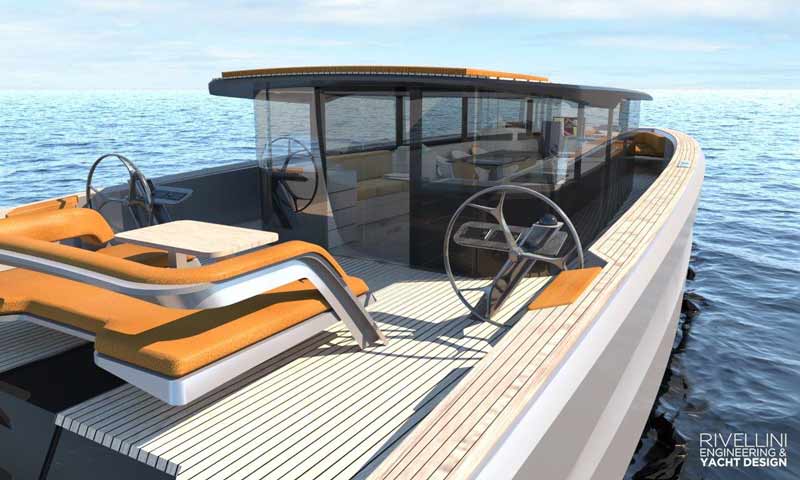
The yacht is powered by a pair of Volvo Penta IPS 650 engines, with a cruising speed of around 16 knots.
Multiple materials are used for both the structural and architectural parts. “The appropriate materials are used depending on the functions and features requested: from fiberglass, carbon fiber and steel to aluminum, leather and glass” Rivellini says: “The underlying goal is to reach the maximum efficiency and the lightest possible weight, while the use of recyclable materials and the choice of small engines with reduced consumption, are also dictated by a concern for environmental impact”.



